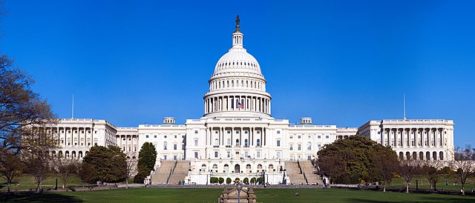New Hampshire: Small State, Big Impact
Keep Up With the Election
New Hampshire’s Primary Election was held on February 9th, 2016.
Jeb Bush spent $34 million in advertisement targeting New Hampshire (NPR). In 2014, New Hampshire recorded a population of 1.3 million people (US Census Bureau). That same year, Los Angeles County alone recorded 10.1 million people living within its boundaries (US Census Bureau). Why, then, is the New Hampshire Primary Election so important?
New Hampshire is entitled to very few delegates: 23 out of 2,472 Republican and 24 out of 4,763 Democrat. However, because the New Hampshire Primary is the nation’s first primary election, the state receives massive media coverage. If a candidate loses the state election, then voters in other states who were thinking of voting for that losing candidate may question their political efficacy. However, great success in the primary encourages PACS and SuperPACS to grant successful candidates tons more money.
The people of Iowa pick corn; the people of New Hampshire pick presidential nominees.
— New Hampshirites
Yes, the Iowa Caucus was held before the New Hampshire election. However, many don’t consider the Iowa Caucus a true primary, so New Hampshire’s primary remains the first. Iowa’s election doesn’t really matter. In 2008, Mike Huckabee won Iowa. That year, John McCain won New Hampshire and he was the final Republican candidate. Barack Obama won New Hampshire that year, too, and he was obviously the final Democratic candidate. In 2012, Rick Santorum won Iowa and Mitt Romney was the final Republican candidate. Do you want to guess who won New Hampshire? Yup, Mitt Romney.
To put New Hampshire’s importance into perspective, consider Carly Fiorina and Chris Christie. Fiorina received 4.1% of the total New Hampshire votes (Associated Press). She dropped out of the presidential race the very next day, February 10th. Chris Christie received 7.4% of the total New Hampshire votes (Associated Press). He also withdrew from the race on February 10th.
The people of New Hampshire have a neat little saying: “The people of Iowa pick corn; the people of New Hampshire pick presidential nominees.” I quite like it.
Bernie Sanders took 60.4% of New Hampshire’s vote, winning for the Democrats (Associated Press). Donald Trump won 35.3% of the vote, winning for the GOP (Associated Press). New Hampshire’s influence still not enough? Sanders raised $6.5 million within 24 hours of winning the state.
Like the passionate Mr. Launius says, the New Hampshire primary is a great predictor of who will become the party nominee. Bernie Sanders and Donald Trump won for their respective parties in the primary, and they may very well win their party nominations.




